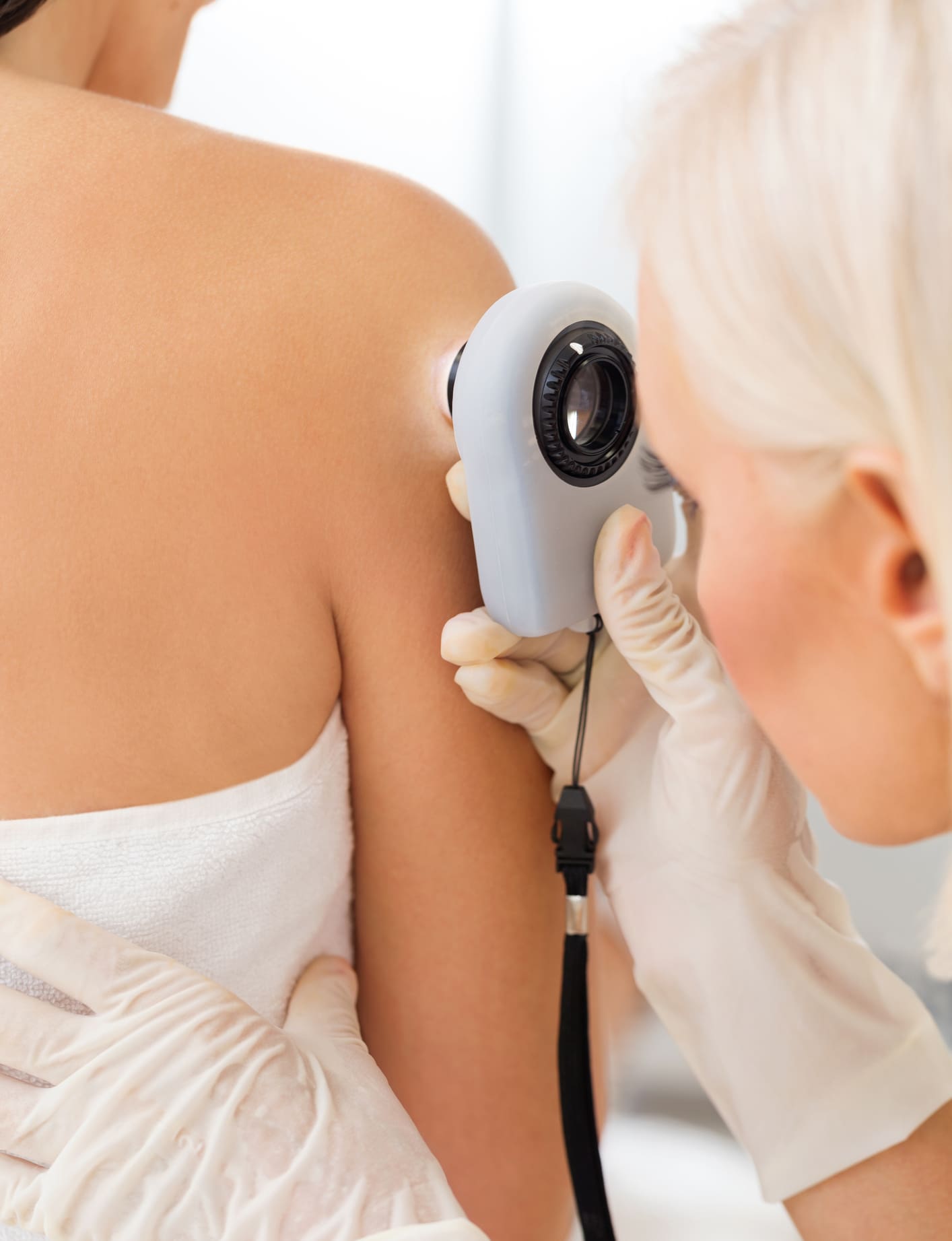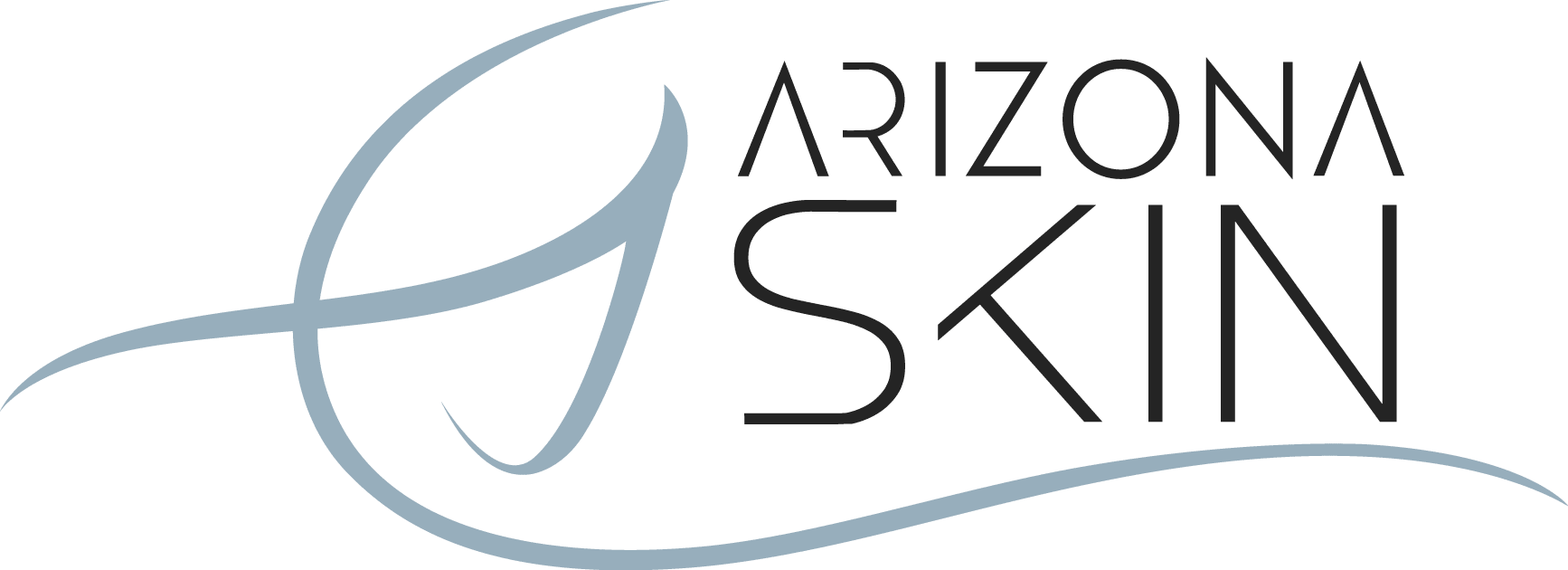Skin Screening
in Phoenix, Arizona
Arizona Skin is dedicated to offering comprehensive skin cancer screening services to patients throughout the Greater Phoenix area, including Surprise, Scottsdale, and Buckeye. Skin cancer screening is a vital component of dermatological care, aimed at detecting skin cancer at its earliest stages when it is most treatable.
What is Skin Cancer Screening?
Skin cancer screening involves a thorough examination of the skin for signs of skin cancer. This process is crucial for early detection of melanoma, basal cell carcinoma, and squamous cell carcinoma, among other skin cancers. Early detection of skin cancer can significantly increase the chances of successful treatment. Regular screenings help identify cancers before they spread or become more challenging to treat. It’s particularly important for individuals with a history of sun exposure, use of tanning beds, or a family history of skin cancer.

At What Age Should You Get a Skin Cancer Screening?
The appropriate age to begin skin cancer screenings can vary depending on individual risk factors. Generally, it’s recommended that adults receive an initial skin cancer screening in their 20s. This serves as a point of comparison for future skin exams. After reaching the age of 40, patients should receive skin cancer screenings on an annual basis to continually monitor their skin health. However, high-risk individuals may want to receive regular skin cancer screenings on a more frequent basis or starting at younger ages. High risk individuals include those with:
- A history of sun exposure
- A family history of skin cancer
- A large number of moles
- A history of tanning bed use
During your initial skin cancer screening with our team, we can evaluate your skin and risk factors to help you determine an appropriate frequency for your future skin cancer screenings.
What are Signs of Skin Cancer?
During your skin cancer screening, our team will look for signs of skin cancer to evaluate whether further testing is needed. Additionally, you may consider scheduling a skin cancer screening if you are experiencing any of the following skin cancer symptoms:
- Changes in moles: changes in existing moles, such as changes in size, shape, color, or texture can be a sign of skin cancer. The ABCDE rule is a helpful guide:
- Asymmetry: One half of the mole doesn’t match the other.
- Border: Irregular, scalloped, or poorly defined borders.
- Color: Varies from one area to another; shades of tan, brown, black, sometimes white, red, or blue.
- Diameter: Melanomas are usually greater than 6mm (the size of a pencil eraser) when diagnosed, but they can be smaller.
- Evolving: A mole that changes in size, shape, or color.
- New growths or spots
- Pain or itchiness
- Scaly or crusty skin lesions
- Non-healing sores
- Spread of pigment
- Redness or swelling
What to Expect at a Skin Cancer Screening
If you’re receiving your first skin cancer screening, your appointment will begin with a consultation. During this time, you’ll discuss your medical history, skin type, and any concerns you may have. Then, our team will perform a full body skin exam to identify any areas of concern. In some cases, our team may order blood work and perform a biopsy on a skin lesion to determine whether it’s cancerous or benign. To perform a biopsy, we’ll numb the skin and then shave off a small sample. We’ll send the biopsy to a pathology laboratory for evaluation. After our team gets your pathology report, we’ll contact you with the results and discuss further treatment if necessary.
What Should I Do Between Skin Cancer Screenings?
Between screenings, it’s important to monitor your skin for any changes and protect your skin from the sun. These precautions can minimize your risk for developing skin cancer in the future, and if cancer does develop, ensure early detection. Here is a checklist of good habits to follow between your skin cancer screenings:
- Perform regular self-examinations monthly, looking for any changes or abnormalities
- Follow the ABCDE role when examining moles: Asymmetry, Border, Color, Diameter, and Evolving
- Use sunscreen
- Wear protective clothing and seek shade to minimize direct sun exposure
- Avoid tanning beds
How Much Does a Skin Cancer Screening Cost?
The cost of a skin cancer screening varies, as each patient’s situation is unique. The cost can also change if cancerous growth is discovered during the exam, at which point further treatment will be needed. During your consultation, we will discuss your personalized treatment plan, which will determine the cost. However, annual full body skin exams are typically covered by health insurance providers. Patients are encouraged to check their health insurance plans to determine their eligibility for coverage. Furthermore, Arizona Skin offers financing options to make all our treatments more affordable.
What Happens if a Suspicious Area is Found During the Exam?
If a suspicious area is found, our team may order blood work or perform a biopsy on a skin lesion to determine whether it’s cancerous or benign (non-cancerous). If the skin lesion is benign, no further treatment is needed. If the lesion is determined to be cancerous, our team will explain the skin cancer treatment options available to you and help you move forward with treatment.
At Arizona Skin, we are committed to providing the highest standard of care in skin cancer screening and prevention. Early detection is key in the fight against skin cancer. We invite residents of Phoenix, AZ, and surrounding areas to contact us for a skin cancer screening. Your health and peace of mind are our top priorities, and we are here to support you every step of the way.
If you are experiencing any skin concerns or conditions, don’t hesitate to reach out to Arizona Skin. Our team of experts is here to provide you with the highest quality medical dermatology care in the Greater Phoenix area. Contact us today to schedule your appointment and take the first step towards healthier skin. We welcome patients from Scottsdale, Surprise, and Buckeye, Arizona.
